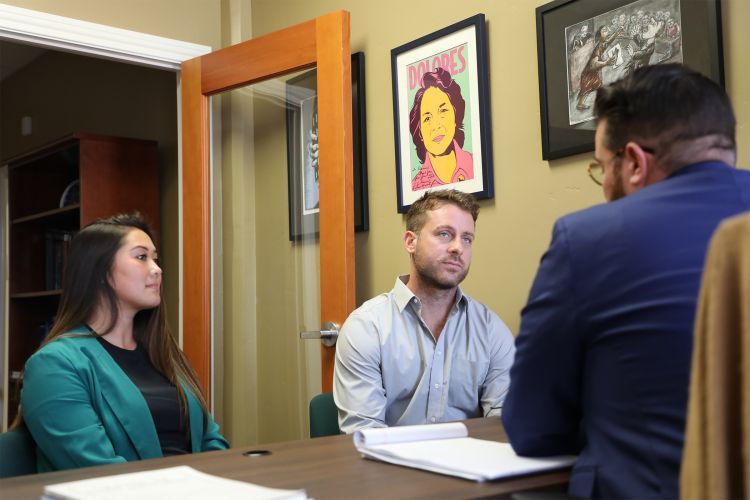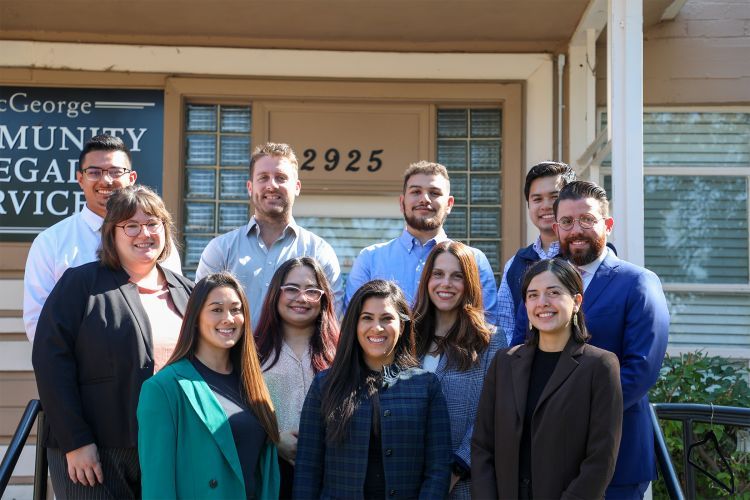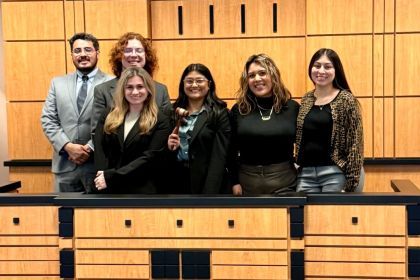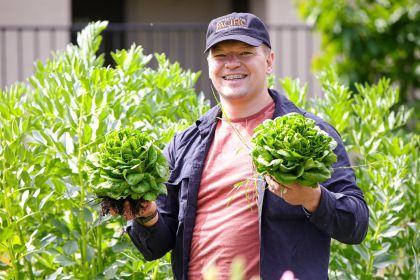Breadcrumb
Homeless Advocacy Clinic scores major victory on behalf of unhoused Sacramentans

(Left to Right) McGeorge School of Law students Megan Nakao '23 and Ben Walden '23 with Professor Ron Hochbaum
The Homeless Advocacy Clinic at the University of the Pacific McGeorge School of Law played a critical role in saving homeless and other low-income people across Sacramento more than $162 million in court fines and fees.
The clinic partnered with the ACLU of Northern California, the Western Center on Law and Poverty and Legal Services of Northern California to secure court compliance with AB 199, a state statute enacted last year that required courts to vacate civil assessment fees on infractions or tickets imposed prior to July of that year. The threat of civil fees is used by California courts to incentivize payment of ticket fines, but a 2022 report from Debt Free Justice California revealed that the vast majority of fees were added to tickets issued to low-income Californians who already could not afford to pay the original fines.
In the course of their representation of unhoused people, law students in the clinic discovered that Sacramento Traffic Court had not implemented AB 199 and was rejecting their requests to vacate civil assessment fees for clients. In response, the Homeless Advocacy Clinic teamed up with other statewide leaders to co-author a demand letter, which resulted in the court's eventual compliance with the new law.
The Homeless Advocacy Clinic provides holistic legal services to unhoused Sacramentans, including in the area of infractions or traffic tickets.
“Sadly, it is common for our clients to get tickets for innocent behavior they must engage in while living outside—things like sitting down or sleeping in public,” said Tori Larson, a staff attorney in the clinic.
Assistant Clinical Professor Ron Hochbaum, director of the Homeless Advocacy Clinic, added: “Sacramento is notorious for its criminalization of homelessness. The National Homelessness Law Center has placed the city in its ‘Hall of Shame’ for its aggressive enforcement of anti-homeless laws.”

Front row: Megan Nakao ’23, Deanna Kadkhodayan ’23 and Francia Orduño '24, middle row: Staff Attorney Tori Larson, Joanna Navarro ’24, Lyndsay Anderson ’24 and Homeless Advocacy Clinic Director Ron Hochbaum and back row: Ismael Perez ’23, Ben Walden ’23, Mohammad Mikbel ’23 and Michael Ung '23
“It was startling to have our requests denied. As a law student, you expect the courts to follow the law,” said Ismael Perez ’23.
Hochbaum said he is, “very proud of the Homeless Advocacy Clinic students for their determination and hard work in this effort.”
“While we are satisfied with this result and the relief it provides to thousands of unhoused Sacramentans, we will not rest until the city and county stop punishing people for behavior that is unavoidable while living outdoors. People need housing, not fines that drive them deeper into homelessness,” Hochbaum said.
McGeorge School of Law’s Homeless Advocacy Clinic is one of only five law school clinics in the nation dedicated to working with people experiencing homelessness and the only law school clinic in the nation exclusively serving unhoused clients who have had contact with the criminal legal system. Students in the clinic learn fundamental lawyering skills such as interviewing, counseling, and oral advocacy while working on real cases.
The clinic was established in 2021 with a grant from the CARESTAR Foundation. In 2022, Robert Buccola ’83 and his wife, Dr. Kawanaa Carter, committed to a $300,000 gift to help sustain the clinic.





